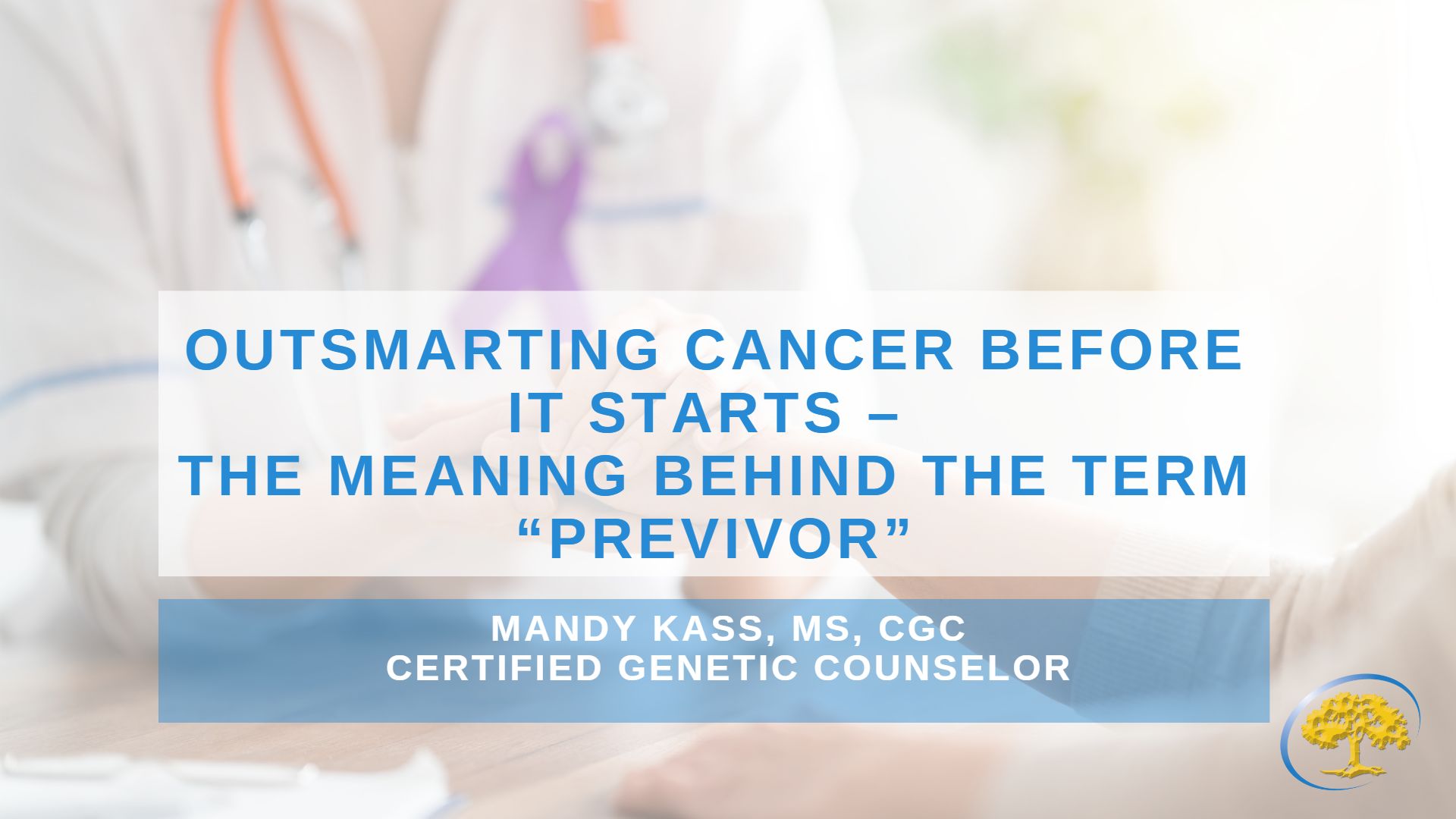
Posted 1 year ago
Outsmarting Cancer Before It Starts – The Meaning Behind the Term “Previvor”
Cancer, a scary word often spoken in hushed tones, is a disease that many are all too familiar with. For those who have never had a personal diagnosis of cancer, but do have a strong family history of cancer, it may feel like a cancer diagnosis is an inevitable part of your future. But what if there was something we could do about that; a way to use our genetic information to outsmart cancer?
Many individuals, with and without cancer, are now turning to the power of genetic information to better inform their potential cancer risks. Genetic testing uses a simple blood or saliva sample to determine if someone was born with a genetic mutation that increases their risk for certain cancers. Armed with this knowledge, these individuals and their providers can then use the information to create tailored screening plans to better manage those specific cancer risks. In some cases, preventative surgeries may even be considered to reduce someone’s inherited risk. But even after genetic testing and implementation of tailored screening plans, these individuals still face a unique experience in their journey of having a hereditary cancer predisposition.
Previvors are survivors of an inherited predisposition to cancer who have not been diagnosed with cancer. In other words, a cancer previvor is a person who takes action to reduce the chance of a hereditary cancer before the cancer develops. The term is meant to convey the unique needs and concerns separate from the general population, but different from those who have already been diagnosed with cancer. It describes how individuals with an inherited cancer predisposition are in fact greatly affected by their known genetic risk. For some, it may even become a big part of their identity.
The term “previvor” has been helpful for raising awareness for hereditary cancer predispositions. However, not all individuals with hereditary cancer risk identify as a previvor. Some feel the term legitimizes their experience and provides a crucial sense of community and empowerment, while others may feel the term frames cancer as an inevitable part of their future. Each person’s identity is unique and complex, and people may have different reasons for adopting or rejecting the term previvor. Regardless of which definition resonates, the term previvor often speaks to a before and after; a change of course in life due to a hereditary cancer risk.
Ultimately, if we can identify those individuals who have an inherited predisposition to cancer, we can help them determine an appropriate plan for prevention; creating a cancer previvor. The best way to accomplish this is with genetic testing. Conversations and decisions regarding genetic testing outcomes can be difficult. While some individuals are eager to proceed with preventative measures if an inherited risk is found, others may be leery about taking those next steps. There is no one-size-fits-all answer. When armed with this knowledge, the right decision is the one that aligns with your needs and overall health goals.
Advice for someone who is found to have a hereditary predisposition to cancer:
- Take time to process and breathe – it can be a lot to take in.
- You are not alone – consider seeking out local support groups online or in-person.
- Talk to a Genetic Counselor – Genetic Counselors are specially trained in hereditary cancer predisposition syndromes and can help you navigate the medical management process and family implications.
Mandy Kass, MS, CGC

As a certified oncology genetic counselor, Mandy works with patients who have a personal and/or family history of cancer to assess their risk of having an inherited cancer predisposition. This information allows for the pursuit of early detection or possibly prevention of certain cancer types.
The ultimate goal of cancer genetic counseling is to empower patients to use their personal risk information to better inform treatment and management decisions and to educate family members on their possible cancer risks.
